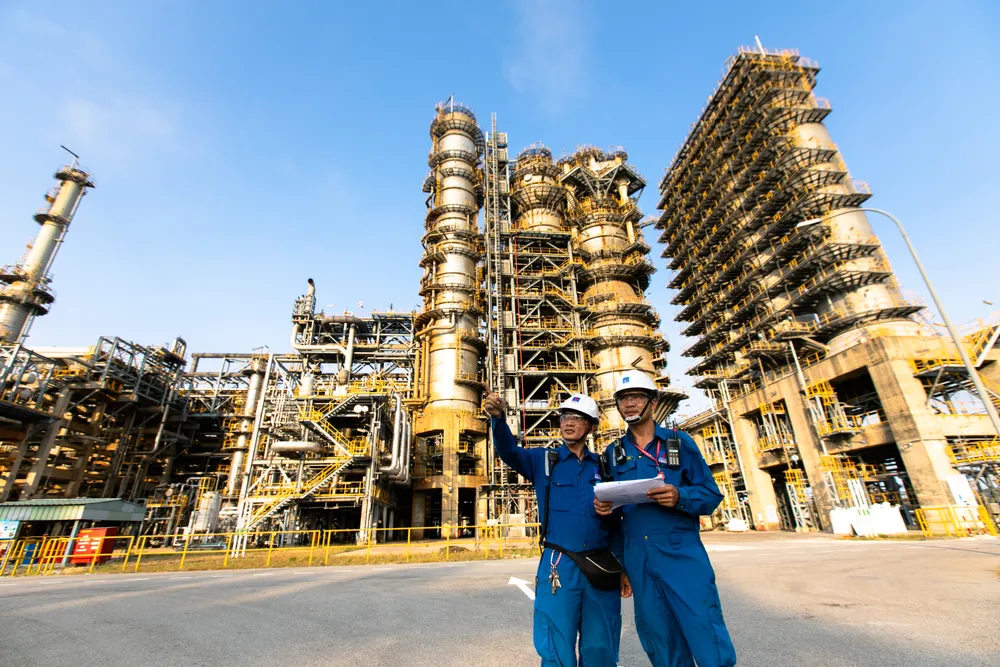
A Long-Awaited Transition to HoSE
In early 2018, BSR successfully conducted its initial public offering (IPO) and listed its shares on the UPCoM exchange. Immediately following this, the company’s leadership expressed intentions of listing on HoSE to enhance transparency and liquidity, which would in turn attract more domestic and foreign investors. However, after years of anticipation, it was only on August 21, 2024, that BSR submitted its application to list 3.1 billion shares on HoSE, corresponding to a charter capital of over VND 31 trillion (approximately USD 1.3 billion).
The delay in transitioning to HoSE was due to a significant issue: BSR's subsidiary, Central Biofuel Company (BSR-BF), had an overdue debt of nearly VND 1.1 trillion (equivalent to 1.5% of BSR's total assets). According to Article 109 of Decree 155/2020/ND-CP, enterprises must not have debts overdue for more than a year to list on HoSE.
However, with the recent filing for bankruptcy by BSR-BF, BSR has now met all the necessary conditions. The company is expected to receive approval for its listing on HoSE, which will provide a short-term boost to its stock price.
Narrowing Business Opportunities
Founded in 2008, BSR manages and operates the Dung Quat Oil Refinery, which has an investment capital of over USD 3 billion and a refining capacity of 6.5 million tons of low-sulfur crude oil annually, equivalent to 148,000 barrels per day. BSR currently accounts for about 30% of Vietnam’s gasoline demand.
Despite significant investment and attention, BSR’s business performance has rarely shown significant breakthroughs due to its dependence on global oil prices. The company has also been embroiled in management scandals, including the 2018 prosecution of former Chairman Nguyen Hoai Giang for “abuse of position and power to appropriate property” under the Penal Code.
BSR's last significant financial recovery occurred in 2022, when both revenue and profit soared. Net revenue reached VND 167.1 trillion (up 65%), while post-tax profit surged by 119% to VND 14.7 trillion. Gross profit margins also improved from 7.6% in 2021 to 9.6%, primarily due to the sharp rise in oil prices, which led to a significant improvement in the crack spread — the difference between output product prices and input crude oil prices.
However, following the record-breaking year of 2022, BSR faced challenges in 2023 and the early months of 2024. According to the second-quarter financial report for 2024, BSR’s revenue dropped by 27.5% due to maintenance work, which reduced production output by 22.1%. More concerning was the sharp decline in gross profit, which fell by 57.7% due to the high costs of the overhaul. Additionally, crack spreads for BSR’s main products, diesel and jet fuel (JetA1), were unfavorable, as demand for these products did not meet expectations. While gasoline crack spreads increased by 15%, this was not enough to compensate for the losses in diesel and jet fuel.
From the start of the third quarter of 2024, crack spreads for diesel, RON95, RON92, and JetA1 gasoline in Asia declined by 44%, 24%, 48%, and 42%, respectively. The primary reason for this sharp decline was the sluggish consumption in the Chinese market, which led to high inventories across the Asian region, even during peak seasons.
Given these factors, KB Securities Vietnam (KBSV) predicts that BSR will struggle to reverse its fortunes in the final quarter of 2024. The regional petroleum market offers little momentum to turn things around in the short term.
Difficulties in Achieving Breakthrough Growth
In its latest report, the Organization of the Petroleum Exporting Countries (OPEC) adjusted its forecasts for global crude oil demand for 2024 and 2025, reducing them by 6% and 3.5%, respectively. This downgrade was primarily due to lackluster economic data from the two largest oil consumers, the U.S. and China.
On the supply side, OPEC+ (which includes Russia) agreed to postpone their production increase plans until late November 2024 to counter the decline in oil prices. However, political stability in Libya has shown signs of improvement, alleviating concerns about supply shortages and putting further downward pressure on crude oil prices in the short term. As a result, KBSV has maintained its assumption that oil prices will average USD 83 per barrel in 2024, before falling to USD 80 per barrel in 2025.
With falling oil prices leading to less favorable business conditions, BSR’s upcoming listing on HoSE is expected to create a temporary breakthrough. However, investors remain cautious. For example, despite BSR’s strong financial performance in 2022, its stock price did not increase significantly, and even experienced sharp corrections thereafter.
This pattern is a primary reason why KBSV has issued a “neutral” recommendation for BSR’s stock. The target price of VND 24,400 per share represents only a modest 5.2% increase from the closing price of VND 23,200 on September 10, 2024.
While the listing of BSR shares on HoSE is expected to bolster its stock in the short term, the company’s long-term outlook is clouded by external factors, including global oil price fluctuations and economic uncertainties in key markets like China and the U.S. BSR’s heavy reliance on global oil prices means that it remains vulnerable to market downturns, and recent history has shown that even strong financial results do not necessarily translate into sustained stock price growth.
For investors, BSR’s stock may offer some near-term gains, but caution is advised as the company navigates a challenging path in 2025, with few clear catalysts for a major turnaround in its core business operations. The road ahead for BSR will require careful management of both internal operations and external market conditions to sustain its competitive position in Vietnam's petroleum sector.




















